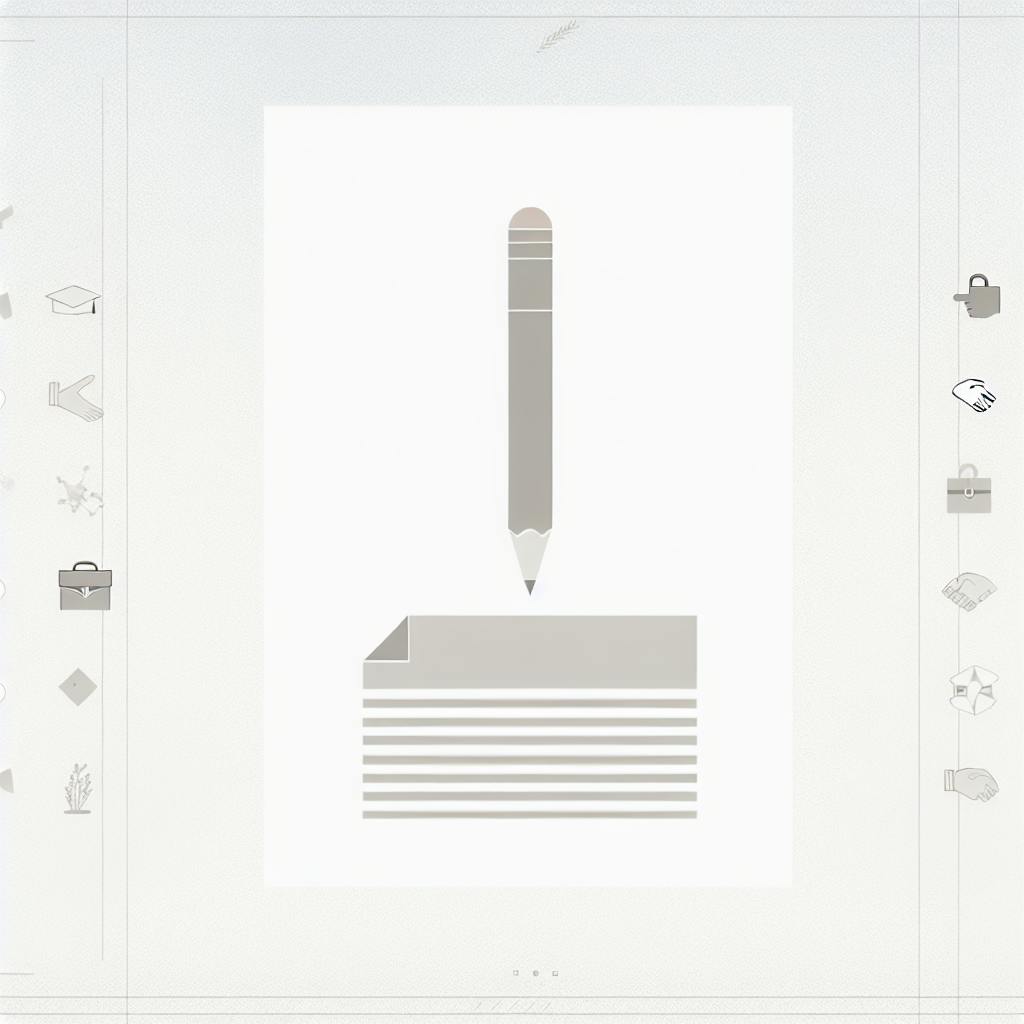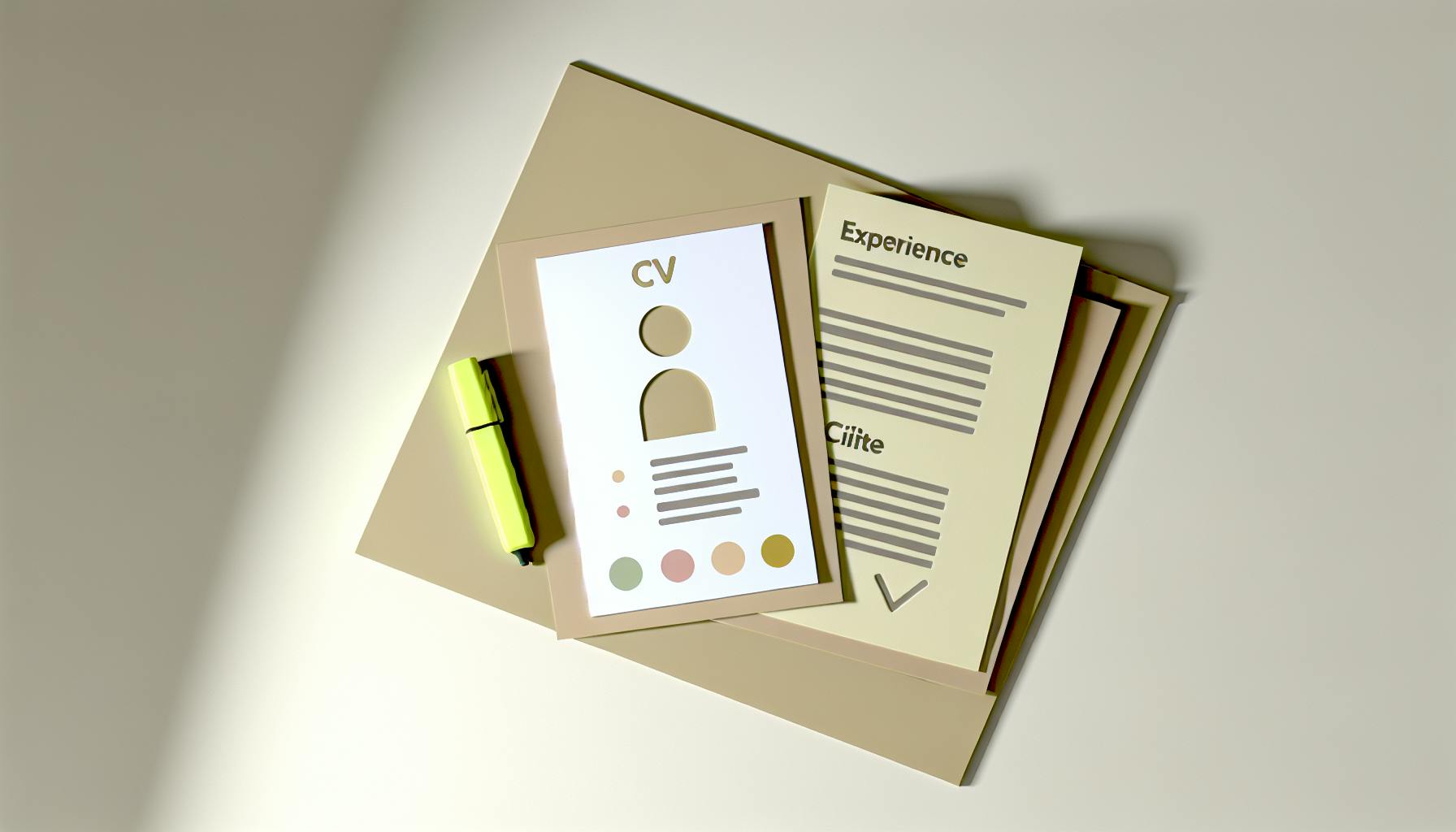The ideal resume length depends on your experience, industry, and the job you're applying for. Here's a quick overview:
- Entry-Level (0-3 years): 1 page
- Mid-Level (4-10 years): 1-2 pages
- Senior-Level (10+ years): 2 pages
| Experience Level | Recommended Length | Focus Areas |
|---|---|---|
| Entry-Level | 1 page | Education, skills, internships |
| Mid-Level | 1-2 pages | Achievements, promotions, projects |
| Senior-Level | 2 pages | Extensive experience, leadership roles, accomplishments |
Tailor your resume length to include the most relevant information without unnecessary details. Use keywords and accomplishments to match the job requirements, and format it with a clear layout for easy reading.
Related video from YouTube
Factors Affecting Resume Length
Different factors can influence the ideal length of a resume. It's important to recognize these factors to tailor your resume appropriately.
Work Experience
The number of years you've spent in the workforce impacts the length of your resume. Here's a quick guide:
| Experience Level | Recommended Length | Focus Areas |
|---|---|---|
| Entry-Level | 1 page | Education, skills, internships |
| Mid-Level | 1-2 pages | Achievements, promotions, projects |
| Senior-Level | 2 pages | Extensive experience, leadership roles, accomplishments |
Industry Norms
Industry standards also affect resume length. For example:
| Industry | Recommended Length | Focus Areas |
|---|---|---|
| Academia/Research | 2-3 pages | Publications, research, academic achievements |
| Technology | 1-2 pages | Skills, projects, relevant experience |
| Marketing | 1-2 pages | Campaigns, results, creative work |
Job Level
The job level you're applying for affects the ideal resume length:
- Entry-Level: Keep it concise, focus on potential.
- Mid-Level: Highlight achievements and promotions.
- Senior-Level: Show leadership, strategic thinking, and major accomplishments.
Career Changes
If you're changing industries or job functions, adjust your resume length accordingly:
- Technical to Management: Highlight leadership skills, management experience, and relevant achievements.
Academic/Research Roles
For academic and research roles, CVs often need to be longer:
- Focus: Publications, research projects, academic achievements, teaching experience.
Resume Length Guidelines
When it comes to resume length, there's no one-size-fits-all answer. The ideal length depends on your experience, industry, and job level. Here are some guidelines to help you determine the optimal length for your resume:
One-Page Resume
A one-page resume is ideal for:
- Entry-level candidates with limited work experience
- Recent graduates with minimal work history
- Those changing careers or industries
| Pros | Cons |
|---|---|
| Easy to scan and review | May not provide enough space to showcase extensive experience or achievements |
| Forces you to prioritize your most relevant skills and experiences |
Tips:
- Use bullet points and concise language to make the most of the limited space
- Focus on highlighting your education, skills, and relevant coursework or projects
Two-Page Resume
A two-page resume is suitable for:
- Mid-level professionals with 5-10 years of experience
- Those in technical or academic fields where extensive research or publications are necessary
- Senior-level candidates who need to showcase leadership experience and achievements
| Pros | Cons |
|---|---|
| Provides more space to showcase achievements, skills, and experience | May be overwhelming for hiring managers to review |
| Allows for a more detailed work history and education section | Requires careful formatting to ensure easy scanning |
Tips:
- Use clear headings and bullet points to break up the content
- Prioritize your most relevant experience and achievements on the first page
Three-Page Resume
A three-page resume is rarely necessary, but may be suitable for:
- Senior-level candidates with extensive experience and achievements
- Those in academic or research fields with numerous publications and presentations
- Executive-level candidates who need to showcase strategic leadership and vision
| Pros | Cons |
|---|---|
| Provides ample space to showcase extensive experience, achievements, and qualifications | May be too lengthy for hiring managers to review |
| Allows for a detailed work history, education, and skills section | Requires exceptional formatting and organization to ensure easy scanning |
Tips:
- Use a clear and concise format to make the most of the space
- Prioritize your most relevant experience and achievements on the first two pages
Tailoring Resume Length
When crafting your resume, it's important to match its length to the job and industry you're applying to. Different employers and roles need different levels of detail. Here's how to tailor your resume length effectively.
Keywords and Relevance
Focus on relevance by using keywords from the job description. This helps you decide what to include and what to leave out. Ask yourself:
- What skills and qualifications are must-haves in the job description?
- What experiences and achievements align with the job requirements?
- What information can be removed or shortened to make room for key details?
sbb-itb-b0d1ece
Formatting and Layout Tips
Creating a clear and easy-to-read resume is crucial. Here are some tips to help you format and layout your resume effectively:
Font Choice
- Font: Use standard fonts like Arial, Calibri, or Helvetica.
- Size: Stick to 10 or 11 points.
- Consistency: Use the same font throughout. Use bold or italics to highlight key points.
Margins and Spacing
- Margins: Keep at least 0.5-inch margins on all sides.
- Spacing: Use line spacing to separate sections. Avoid cramming too much information.
Bullet Points vs. Paragraphs
- Bullet Points: Use them to list duties and achievements, especially in the work experience section.
- Paragraphs: Use them to provide context and explain experiences in more detail.
Prioritizing Information
- Top Placement: Place the most important information at the top of each section.
- Keywords: Use keywords from the job description to decide what to include.
- Relevance: Focus on relevant details and avoid unnecessary information.
Common Resume Mistakes
When crafting your resume, avoid common mistakes that can harm your chances of getting noticed by recruiters and hiring managers. Here are some pitfalls to watch out for:
Irrelevant Details
Including irrelevant details can make your resume seem cluttered and unprofessional. Only include information that is relevant to the job you're applying for. Remove any unnecessary sections, such as hobbies or unrelated coursework. Focus on showcasing your relevant skills, experience, and achievements.
Overly Detailed Job Descriptions
While it's essential to provide some context about your job responsibilities, avoid overly detailed job descriptions. Keep your descriptions concise and focused on the achievements and skills you used in each role. Use bullet points to break up large blocks of text and make your resume more scannable.
Filler Words and Phrases
Eliminate filler words and phrases like "results-oriented," "team player," or "strong communication skills." These phrases don't add any value to your resume and can make you seem like you're trying to fill space. Instead, focus on using specific examples and metrics to demonstrate your skills and achievements.
Inconsistent Formatting
Maintain consistent formatting and layout throughout your resume. Use the same font, spacing, and margins throughout to create a clean and professional look. Avoid using different fonts or font sizes to highlight certain sections, as this can make your resume look cluttered.
Failing to Tailor Length
Tailor your resume length to the specific job and industry. A one-page resume may be suitable for entry-level positions, while a two-page resume may be more appropriate for senior roles. Make sure you're highlighting the most relevant information and avoiding unnecessary details.
Conclusion
Creating a good resume means finding the right balance between being brief and being detailed. While a one-page resume is often best, the perfect length depends on your experience, industry, and the job you're applying for.
Key Points:
- Tailor your resume length: Make sure to include the most relevant information without adding unnecessary details.
- Use keywords and accomplishments: Focus on what matches the job requirements.
- Clear layout: Format your resume so it's easy to read.
FAQs
How many pages should my resume be in 2024?
A one-page resume is often best, but the ideal length depends on your experience, industry, and the job you're applying for. Tailor your resume to include the most relevant information without adding unnecessary details. Use keywords and accomplishments to match the job requirements.
Is a 3-page resume too long?
Most resumes should be between one and two pages. However, a three-page resume can be suitable for experienced professionals or those in academia, research, or technical fields.
What is the ideal length of a resume for 5 years of experience?
For someone with 5 years of experience, a one or two-page resume is appropriate. If you have over 10 years of relevant experience, a multi-page resume may be better.
Is a one-page resume outdated?
A one-page resume is still common for entry-level positions. However, many recruiters now expect a two-page resume, even for those with less experience.
How long should a resume be with 25 years of experience?
For someone with 25 years of experience, customize your resume for the job you're applying for and include only relevant experience. A two-page resume is usually sufficient if all the information is relevant to the job.
![9 Proven Salary Negotiation Strategies [2024]](https://mars-images.imgix.net/seobot/shortfol.io/66911aeb31dacbcb3450d400-5409215f0ace8233958924b32eb90dfd.png?auto=compress)

